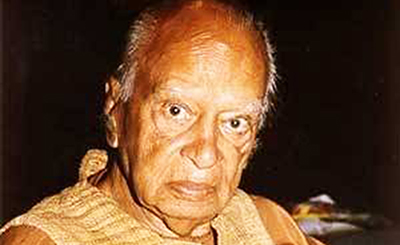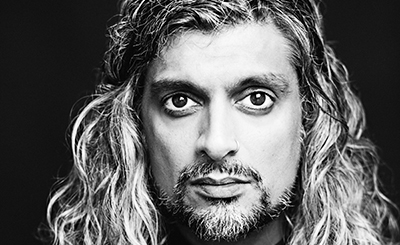
Bindu Subramaniam, singer, songwriter, and co-founder, Subramaniam Academy of Performing Arts. Photos courtesy of Bindu
Things are overlapping in such interesting ways that if you put blinders on yourself, you will never actually discover what you can do
What do you want to be when you grow up?
The most troublesome question I’ve ever been asked is — “What do you want to be when you grow up?”
It may seem innocent enough, friendly even, but “What do you want to be when you grow up?” is a question that has sent many, many people, myself included, down the wrong path of feeling that they need to know what they want to be, and that they can only be one thing.
I was led to believe that there’s a “right” answer to this question. When I was in kindergarten, I dressed up as a lawyer for Halloween, and it seemed like a fun thing to do — walk around with a briefcase all day collecting candy.
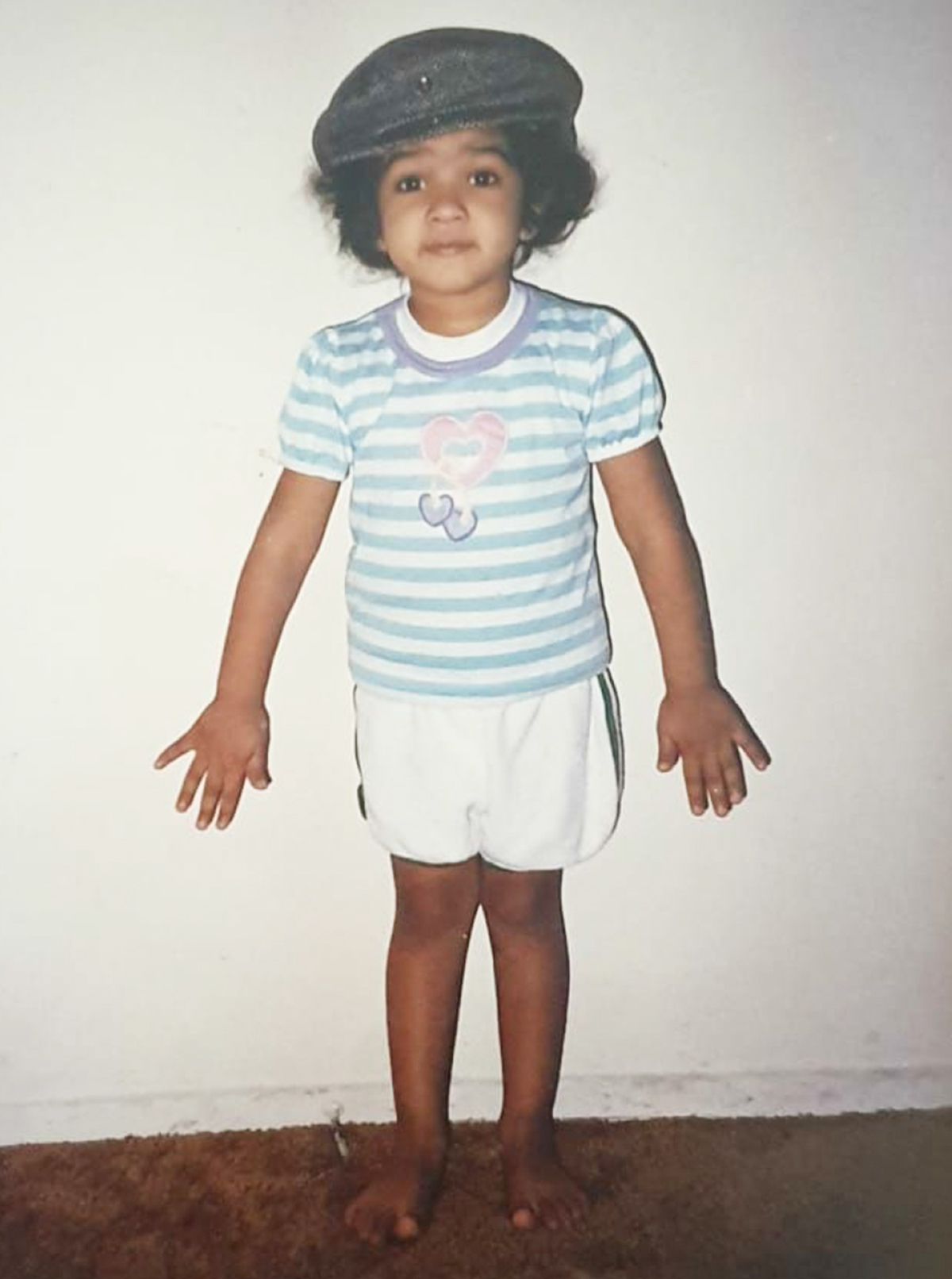
Bindu as a child
So I told everyone who asked — I want to be a lawyer when I grow up. The grown-ups around me seemed impressed, so I felt like I had the right answer. As I got older, I read too many John Grisham novels, and was even more convinced that I wanted to be a lawyer when I grew up. And I think it was half way through law school by the time I realised, with a sinking feeling, that I really didn’t want to be a lawyer.
Lesson 1: The downside to thinking that there’s a right answer is you get stuck on that right answer and don’t think about what you really want to be or do. Once I realised I didn’t want to be a lawyer, I did the only sensible thing I could think of — I finished my bachelor’s degree in law, got a master’s degree in law (because why not), followed it with a master’s in songwriting and music business, did an MPhil in cultural studies, a Ph.D. in music education, and threw in a Montessori diploma for good measure. And I still have no idea what I want to be when I grow up.
The “real world”
Today, I’m an educator and songwriter, and I run SaPa — the Subramaniam Academy of Performing Arts. Which means I get to eat a lot of birthday cake (to be fair to all my students), and I get to speak to a lot of hard-working, passionate, talented young people. And they all seem to have one question — “should we cut back on extracurriculars so that we can spend more time getting ready for the real world?”
It’s time we tell them this big, scary “real world” doesn’t exist. Why are we trying to prepare kids for jobs that may not exist in a few decades? We think we’ve evolved, but we’re still pushing the message that they probably cannot make a living doing what they love to do. And that’s absolutely wrong. Take me, for instance. Was I great at math? Sure, depending on how you define “great” or how you define “math.” Did I get an engineering degree?
Absolutely not. I do what I love and I never once thought about having to choose between different things.
Things are overlapping in such interesting ways that if you put blinders on yourself, you will never actually discover what you can do. Just take the many examples of people who are changing the world by putting their different lines of interest together. Brian May manages to be an astrophysicist and lead guitarist of Queen (no pressure — geddit?).
Lesson 2: Don’t calculate where your interests might take you. More importantly, don’t limit yourself to one interest. Careers have evolved, job requirements have changed, and people have opened their minds to everything interesting. Through it all, here’s what has remained constant: only genuine passion will get you where you want to go. And hard work eats talent for breakfast, every day.
The disruption dilemma
Search for the words “innovation” and “disruption” together and you will find pages and pages of articles explaining why you can’t find one without the other. Innovation and disruption seem inextricably linked, like my daughter and her loudest dance tunes at naptime on a Sunday.
I don’t know how much I agree with this notion. To disrupt means to “drastically alter or destroy the structure of,” right? When I did it to my friend’s hair in school, did my parents say “this child has what it takes to be the next Steve Jobs?” I assure you they didn’t.
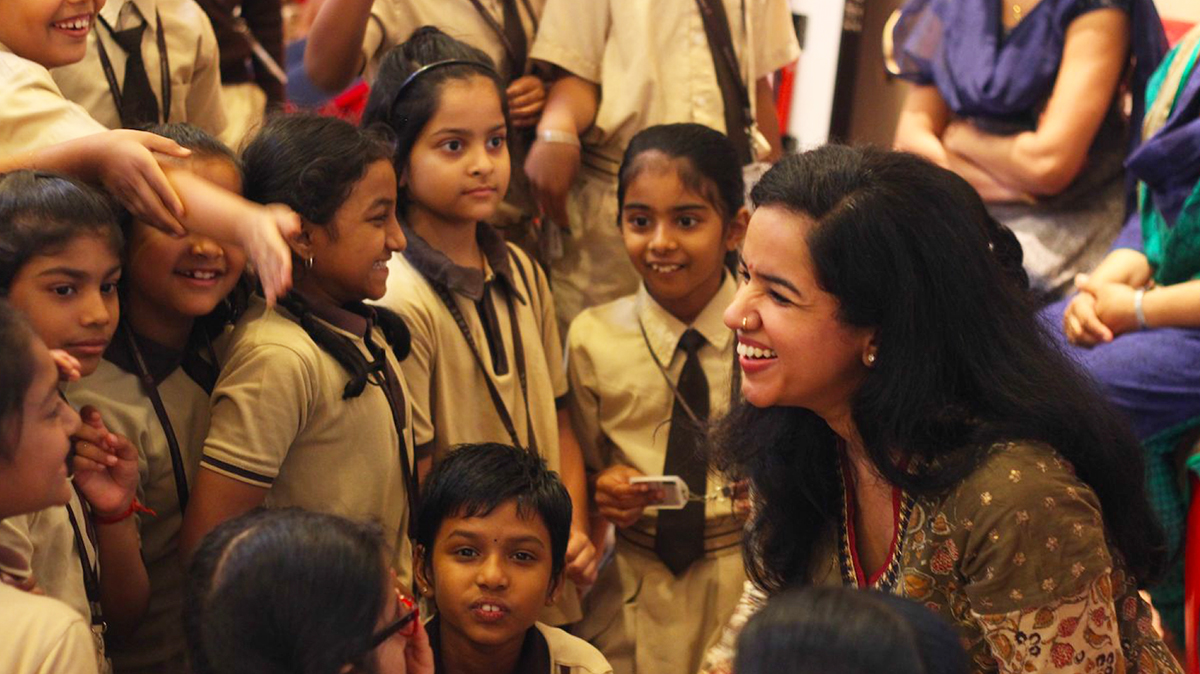
I appreciate the great things disruptive innovation has done for the world. In fact, I’m typing this article on one of those great things. However, I’d like to challenge the idea that innovation comes through disruption alone. Sir Isaac Newton said it best when he said, “If I have seen further it is by standing on the shoulders of giants.” It’s a principle I apply in my work as a musician and educator, even if Isaac Newton wasn’t thinking of music specifically. Some of the best examples of innovation in my career have happened as a result of grounding myself in tradition.
Our SaPa in Schools curriculum is by no means disruptive. It teaches children about traditional music in India and other parts of the world. It helps them understand cultural practices in different countries. It helps them understand history and social changes. It also encourages innovation. In our 10,000 deeds campaign a few years ago, we encouraged children to move towards the Sustainable Development Goals one step at a time. The idea was simple: every little thing counts — whether it’s reducing plastic use or deciding not to waste food. Without turning anything upside down, children were brought closer to sustainable living.
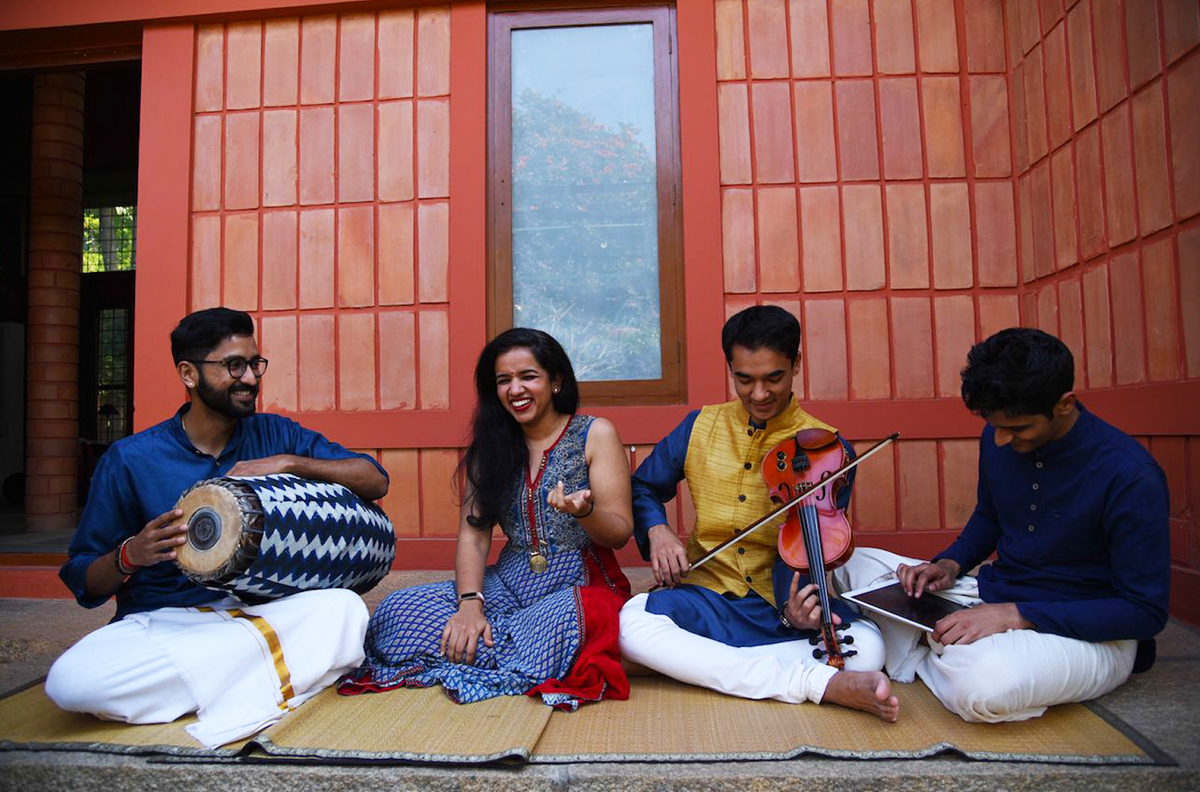
Our band, The Thayir Sadam Project, came to life because four musicians decided to come together and wear our traditional, curd rice eating ways on our sleeve. We believe that what’s traditional is cool, and we bring that element into every piece we write. We embrace musical styles from around the world while staying rooted in Indian classical music. When we released Crazy Little Thing Called Chakravakam with Carnatic duo Ranjani-Gayatri, we started from a deep-rooted place of tradition but we built on it. We gave listeners the option to create with us and we released a jam track; we received hundreds of entries and were able to make another song out of them.
I’m not saying there’s one “right” way to innovate. In fact, I’m saying the opposite — that you don’t always have to break the routine, or drastically change something that didn’t need more than a little tweak.
Lesson 3: Don’t let the self-proclaimed cool kids fool you into thinking that life begins after you smoothly slide away from your roots. Stand proudly on the shoulders of giants. And watch out for falling apples.
This piece is part of The Women’s Issue, curated by Shireen Quadri
More from The Byword
Comments
*Comments will be moderated





